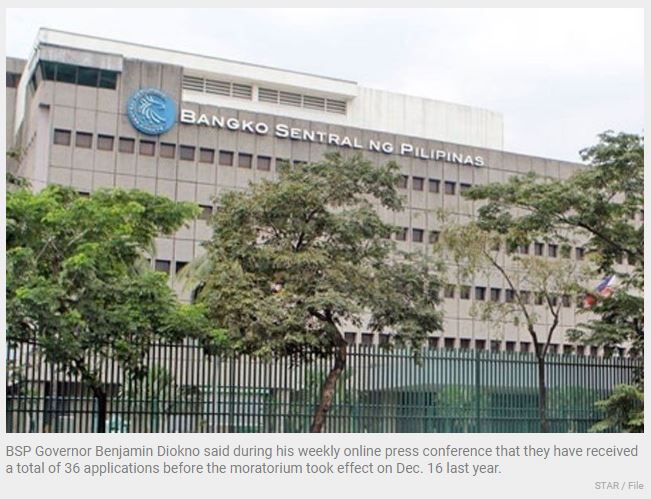Philippines: BSP reviews more EMI applications
MANILA, Philippines — The Bangko Sentral ng Pilipinas (BSP) is evaluating additional applications from non-bank electronic money issuers (EMIs) after the regulator imposed a two-year moratorium on the issuance of licenses.
BSP Governor Benjamin Diokno said during his weekly online press conference that they have received a total of 36 applications before the moratorium took effect on Dec. 16 last year.
Of the total number of applications, Diokno said the central bank is now evaluating 18 applications, while one has been approved.
On the other hand, 17 applications have been returned due to incomplete and insufficient information submitted, the BSP chief said.
“All applications received by the BSP until Dec. 15 will be processed on a first-come, first served basis. They will be assessed for completeness and sufficiency of information submitted, as well as compliance with the licensing criteria to operate a non-bank EMI,” he said.
In November, the BSP approved the policy measures in handling applications of non-banks to operate as EMI-others to ensure that its resources are managed and mobilized judiciously in a manner that promotes financial stability and inclusive growth as well as advances the development of innovative electronic money solutions that offer strong value propositions.
To provide a mechanism by which entities that offer strong value propositions may be able to participate in the digital payments and financial ecosystem, Diokno said interested new non-bank EMI applicants with proposals involving new business models, new technologies as well as unserved, targeted niches could request for exception under the Test-and-Learn or Regulatory Sandbox framework.
“The BSP may limit the total number of entities that will avail of the test and learn pathway taking into account the total number of applications received and assessment of the overall banking and payment system situation,” he said.
As of end-December, the BSP has issued licenses to 36 non-bank EMIs or EMI–others as well as to 29 banks. Licensed EMIs provide money transfer or remittance services using electronically stored money value system and similar digital financial services.
Under its Digital Payments Transformation Roadmap, the BSP aims to convert 50 percent of total retail transactions to electronic channels and increase the number of Filipino adults with bank accounts to 70 percent by 2023.
With the COVID-19 pandemic serving as catalysts, estimates showed the share of digital payments to total retail transactions increased to 30 percent last year from 20.1 percent in 2020, while 53 percent of Filipino adults now have bank accounts as of the first quarter of 2021 from 29 percent in 2019.
Diokno said the regulator continues to further promote the stability of the Philippine payments system through Circular 1135 specifying the guidelines on the settlement of e-payments under the National Retail Payment System (NRPS) framework.
He explained the new set of guidelines strengthens the credit and settlement risk management of BSP-supervised financial institutions (BSFIs) participating in automated clearing houses.
“This is a key policy initiative toward encouraging the wider use of e-payment channels while ensuring that retail payment systems in the country operate in a safe, efficient, and reliable manner,” Diokno added.
Circular 1135 identifies the responsibilities of and minimum requirements for BSFIs participating in ACHs, namely InstaPay and PESONet, established under the NRPS.
Source: https://www.philstar.com/business/2022/02/04/2158349/bsp-reviews-more-emi-applications


 English
English




